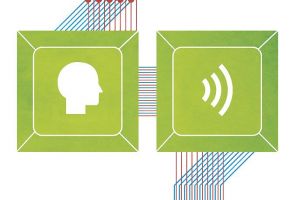I have been an active blogger since 2006, and I often say that becoming one was the best decision I have ever made in my academic life.
In terms of intellectual fulfillment, creativity, networking, impact, productivity, and overall benefit to my scholarly life, blogging wins hands down. I have written books, produced online courses, led research efforts, and directed a number of university projects. While these have all been fulfilling, blogging tops the list because of its room for experimentation and potential to connect to timely intelligent debate. That keeps blogging at the top of the heap.
![]() BROWSE THE FULL ISSUE: News and Commentary
BROWSE THE FULL ISSUE: News and Commentary
BUY A COPY: Digital and Print Editions at the Chronicle Store
My academic identity—I'm a professor of educational technology at the Open University in the United Kingdom—is strongly allied with my blog. Increasingly we find that our academic identities are distributed. There was a time when you could have pointed to a list of publications as a neat proxy for your academic life, but now you might want to reference not only your publications, but also a set of videos, presentations, blog posts, curated collections, and maybe even your social network. All of these combine to represent the modern academic. My blog sits at the heart of these, the place where I reference the other media and representations.
This is not to argue that a blog should play the same role for everyone. A key aspect of the digital revolution is not the direct replacement of one form of scholarly activity with another, but rather the addition of alternatives to existing forms. In his book From Gutenberg to Zuckerberg: What You Really Need to Know About the Internet (Quercus, 2012), my colleague John Naughton argues that this is a lesson we should learn. "Looking back on the history," he writes, "one clear trend stands out: Each new technology increased the complexity of the ecosystem."
This trend is evident in academic practice. Previously if I wanted to convey an idea or a research finding, my choices were limited to a conference paper or journal article or, if I could work it up, a book. These choices still remain, but in addition I can create a video, podcast, blog post, slidecast, and more. It may be that a combination of these is ideal—a blog post gets immediate reaction and can then be worked into a conference presentation, shared through SlideShare, or turned into a paper that is submitted to a journal. In each case the blog or social network becomes a key route for sharing and disseminating the findings. One recent study suggests that use of Twitter, for instance, can both boost and predict citations of journal articles.
So blogging works for me, but it might not work for you. Maybe you're more of a YouTube person, or a podcaster, or maybe your skill really lies in acting as a filter and a curator, using a tool such as Scoop.it, which allows you to curate and share resources on a particular topic. Or maybe you're the trusted source for finding the valuable research in your field. It's clear, though, that our academic ecosystem
is a more complex one now. This raises two difficult questions for academics who are expected to do research: First, do these new types of activity count as scholarship? And, if so, how do we recognize and reward them?
In my book The Digital Scholar: How Technology Is Transforming Scholarly Practice (Bloomsbury USA, 2011; free online), I argue that if you look across all scholarly activities, the use of new technology has the potential to change practice. For example, those who teach now have access to abundant, free, online content, while in the past teaching resources were often scarce and expensive.
Scholars no longer need a television series to engage the public. The academic publishing system is being thrown into question as we look at open-access approaches and different means of conducting peer review. And so on. There is hardly an area of scholarly practice that remains unaffected.
An example I like to cite is that of my colleague Tony Hirst, who blogs at OUseful.Info. He likes to play with open data, visualization tools, and mashups. On any one day an idea may occur to him, such as, '"I wonder how the people who tweet a particular link are connected? And who are they connected to?" In a short space of time, he will have experimented with data and tools to provide an answer, and blogged his results. None of this requires research funds or a peer-review filter, and it takes place over a much shorter time period than traditional research. Yet it would be difficult to argue that the blog does not constitute widely accepted definitions of scholarly research.
So I would argue that the answer to the first question above, as to whether new approaches such as blogging constitute scholarly activity, is an emphatic yes. Which leads us to a more problematic question: How should we recognize it?
This is where the issue of increased complexity really begins to cause friction. When it comes to tenure and promotion, the three factors generally considered are teaching, service, and research. The first two are easily understood by tenure committees. The last, and often most heavily weighted one for scholars expected to do research, is that of scholarship. Here tenure committees have increasingly come to rely upon journal-impact factors to act as a proxy for research quality. In short, we know what a good publication record looks like. But these criteria begin to creak and groan when we apply them to blogs and other online media. Simple metrics are subject to gaming, and because of the removal of the peer-review filter, may be meaningless anyway. I may have a YouTube clip of a skateboarding octopus with two million hits, but that doesn't make it scholarly work.
It's a difficult problem, but one that many institutions are beginning to come to terms with. Combining the rich data available online that can reveal a scholar's impact with forms of peer assessment gives an indication of reputation. Universities know this is a game they need to play—that having a good online reputation is more important in recruiting students than a glossy prospectus. And groups that sponsor research are after good online impact as well as presentations at conferences and journal papers.
Institutional reputation is largely created through the faculty's online identity, and many institutions are now making it a priority to develop, recognize, and encourage practices such as blogging.
For institutions and individuals alike, these practices are moving from specialist hobby to the mainstream. This is not without its risks, but as James Boyle, author of the book The Public Domain: Enclosing the Commons of the Mind (Yale University Press, 2008), argues, we tend to overstate the dangers of open approaches and overlook the benefits, while the converse holds true for the closed system.
For instance, I've found that since becoming a blogger, I publish fewer journal articles, so it has had a "negative" impact on that aspect of my academic life. However, it has led to so many other unpredictable benefits—such as the establishment of a global peer network that helps me stay up to date with my topic, increased research collaboration, and more invitations to give talks—that it's been worth the trade-off. Blogging may not be recognized formally, it may be a pain at times, and I may spend parts of my weekend deleting spam, but I have no doubts that becoming a blogger was a wise career choice.










